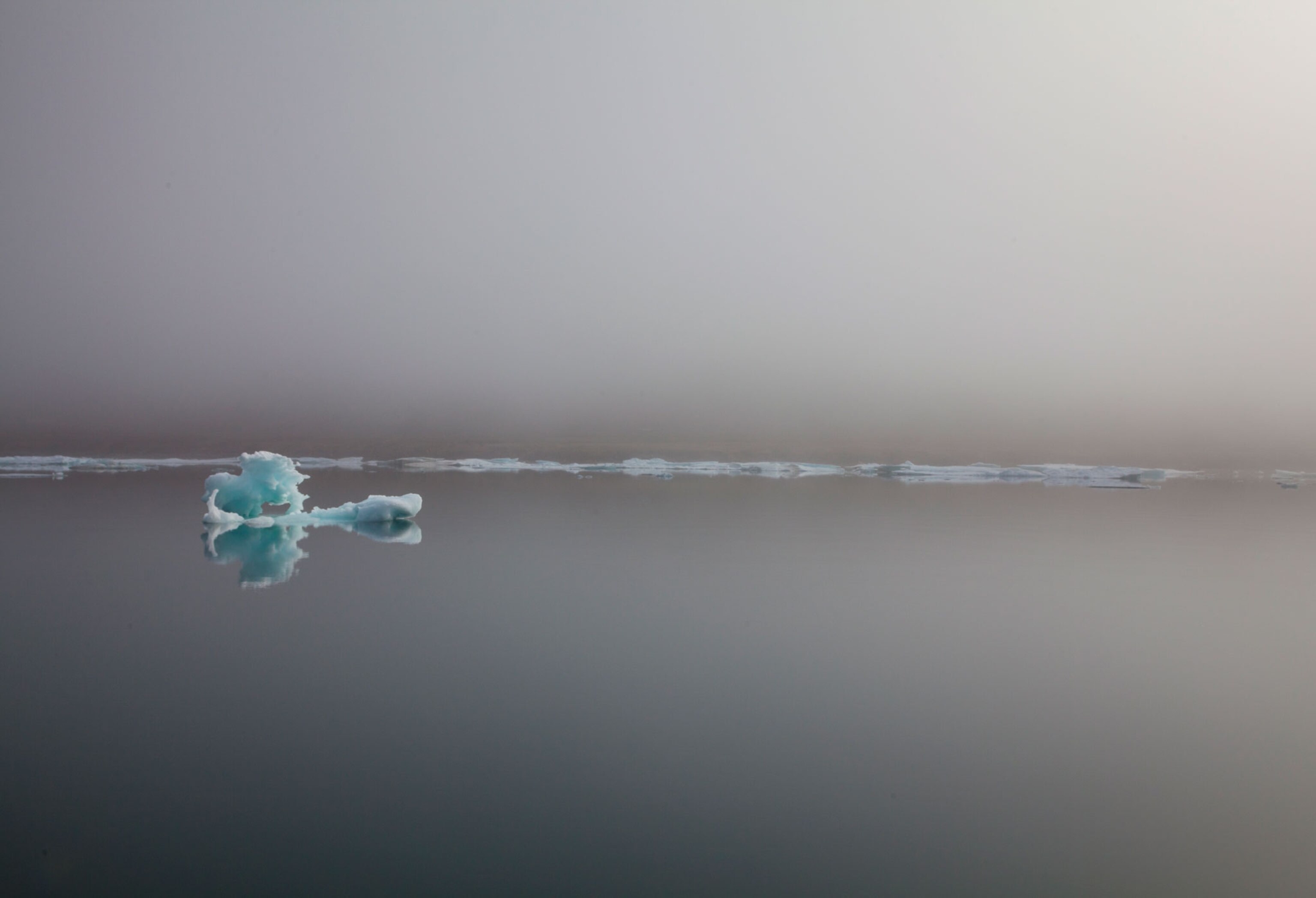
Game of Thrones Star Sounds the Alarm on Climate Change
Actor and UNDP Goodwill Ambassador Nikolaj Coster-Waldau reports from the frontlines of global warming in Greenland and the Maldives.
The tricky thing about climate change, and explaining what it is, is that it's very hard to see. It's hard to feel the rising temperatures when the difference is one- or two-tenths of a degree a year. But those tenths of degrees add up. And this year, I visited two remote and very different parts of the world where the effects of climate change are easily visible to the naked eye and eerily similar.
At first glance, one might not think that the massive, imposing ice caps of Greenland have anything in common with the miles of powdery beaches of the Maldives. I certainly didn’t. But when I traveled to the Maldives last month as a Goodwill Ambassador for the United Nations Development Programme, I was surprised by how familiar the challenges facing the island nation and its people sounded to me. Over and over again, I was reminded of my wife’s native Greenland, where I filmed a climate change project with Google Maps earlier this year.
Made up of numerous islands, both Maldives and Greenland have a widely dispersed population and face infrastructural challenges for services as basic as waste disposal. The residents living in villages scattered across the islands depend largely on fishing for income and sustenance.
As temperatures rise, Greenland’s magnificent ice caps are melting at a quickening pace while rising sea levels and increasing storm surges are eroding the picture-perfect beaches of the Maldives. Climate change is not only threatening to erase the very characteristics that make these two places as unique and beautiful as they are; it’s also directly impacting the local economies and way of life.
In Greenland, the fast-melting ice sheet is pouring 300 billion tons of ice into the ocean each year, which harms important coastal ecosystems, local food and water supplies and is a major contributor to rising sea levels. What’s more, the changing patterns of sea ice have dramatically disrupted the fishing and hunting lifestyles that have sustained the local populations for centuries.
Meanwhile, in the Maldives, the warming sea surface contributes to coral bleaching, which negatively affects the marine eco system and fishing patterns. Rising sea levels and increased occurrences of storm surges and tidal waves are destroying people’s livelihoods and compromising freshwater reserves. Severe beach erosion impacts more than 80 percent of inhabited islands. This further increases the risk of flooding and limits opportunities and space for local industries such as boat building and agriculture.
While in the Maldives, I traveled to Maabaidhoo Island, which is highly vulnerable to severe erosion, high tides and storm surges, particularly during the southwest monsoon period. There I met Muna, a local woman who started growing chillies to supplement her household income. Both she and her husband work but don’t earn enough to make ends meet, so they counted on the small chilli farm as a precious income-generating resource.
Due to erosion and scarcity of land on her island, Muna’s plot was close to the sea. The chillies were a week from harvest when the tides came in late August this year. Despite the diligently raised tin fences and a protective net, her crop was completely destroyed. To make matters worse, Muna could have saved the chillies by rinsing off the salt with fresh water. But the only water available was highly contaminated, saline groundwater. As a result, she lost her investment and months of hard work.
The proximity of the population to the coastal areas makes all Maldivians highly vulnerable to extreme weather events, which are expected to have shorter return periods with increased intensity. The volatility and unpredictability of a changing climate threatens to increase both the frequency and severity of natural disasters globally as well. We’ve already seen this in Hurricane Irma, in floods in Bangladesh, and in landslides, storms and droughts around the world.
As world governments convene for the United Nations climate change conference in Bonn, Germany, from November 6-17, we must make sure that protecting those populations who face the highest risks is at the top of the agenda. The global community must provide strong support to vulnerable countries, especially island nations.
We must invest in proven sustainable climate adaptation and mitigation solutions. As I have seen first-hand during my visit to the UN Development Programme’s initiatives in the Maldives, small steps like increasing the capacity of communal rainwater tanks, introducing smart irrigation systems, restoring shorelines, and supporting coral regrowth can go far.
Communities everywhere require support to tackle climate change. Climate action is a key piece of the puzzle without which we cannot achieve the 17 Sustainable Development Goals. The Paris Agreement has outlined what needs to be done. Now it’s up to countries, cities, communities, and individuals.
Whether you live in the Maldives, Greenland, the U.S. or any other part of the world, climate change is a threat to every single person on this planet. But an even bigger threat is inaction. Doing nothing will have catastrophic consequences.
Instead, taking action with innovative, sustainable solutions will both combat the threat and create a better, cleaner and safer future for all of us. The potential we have cannot be exaggerated. Together we can achieve the 17 Sustainable Development Goals.
We can overcome the dangers of climate change. But it will take all of us.
Nikolaj Coster-Waldau is a Danish actor, producer, and screenwriter who is best known for playing the character Jamie Lannister in HBO’s Game of Thrones. Coster-Waldau also serves as a United Nations Development Program Goodwill Ambassador, a role in which he advocates on behalf of humanitarian issues. He is particularly interested in issues surrounding climate change.